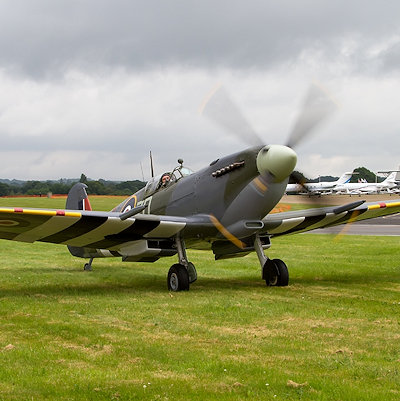
Like us on Facebook
PLACE NAMES


 
|
|
Biggin Hill
|

|
|
|
Biggin Hill is a small town in Greater London, England, located within the London Borough of Bromley. It is located near the border with the Tandridge District of Surrey. Prior to April 1965 it formed part of the county of Kent. Postally it is the only settlement of Greater London with a Westerham, Kent post town address. It is one of the highest settlements of Greater London, with an elevation ranging from 170 metres (560 ft) to over 210 metres (690 ft) above sea level.
Historically the settlement was known as Aperfield and formed part of the parish of Cudham. Biggin Hill was an ancient parish county of Kent, in the Diocese of Rochester, and under the Local Government Act 1894 formed part of Bromley Urban District. The urban district gained further status in 1935 as a municipal borough. Kent County Council formed the second tier of local government during that time. In 1965, London County Council was abolished and replaced by Greater London Council, with an expanded administrative area that took in the metropolitan parts of the Home Counties. It is now part of the London Borough of Bromley.
The most architecturally noteworthy building within Biggin Hill is St Mark's Church, Church Road - 'the moving church' - designed by Richard Gilbert Scott. It was erected in the 1950s using the dismantled materials from All Saints Church, North Peckham. Much of the work was undertaken by volunteers led by Rev Vivian Symons who undertook much of the decorative work himself.
Biggin Hill also has an airport, London Biggin Hill Airport, which uses much of the land formerly used by RAF Biggin Hill Aerodrome. The latter hosted the "Operations Room" for the Operation Crossbow V-1 flying bomb defence during World War II.
The old "west camp" of the airport is now owned by Bernie Ecclestone. Most of the buildings in the West Camp are Grade II listed. A small section remains in the care of the RAF, and the Grade II listed chapel (guarded by replicas of the station gate guardians, a Hawker Hurricane and a Supermarine Spitfire) is open to the public.
The old "south camp" is now occupied by the Biggin Hill Business Park, Airport Industrial Estate and various private flying clubs. There are further commercial premises, hangars, private flying clubs and a helicopter joy-ride and pilot training centre to the east of the main runway.
The term "airport", rather than airfield, is used to describe the present-day facility because it has a terminal building and customs facilities. It is host to a wide range of private/business jet and turbo-prop aircraft up to the size of a Boeing 737. The main airport apron has recently been enlarged; the one remaining hangar on the old south camp has been totally re-clad and a planning application has been posted for further hangars on the eastern side.
A model aircraft site operates within its Air Traffic Zone, operating large model aircraft. In 2009 there were sightings of model aircraft traffic and one air proximity report was filed, according to the Airport Consultative Committee in May 2010.
Biggin Hill is the location of a VOR-DME navigational beacon, codenamed "BIG", which anchors the South East Arrival Stack for London Heathrow Airport.
The airport was the venue of the Biggin Hill International Air Fair, an annual airshow that usually took place towards the end of June. The event was first held in 1963 and the airshow was permanently cancelled in 2010, shortly after the 48th event.
|
 Feel free to Email me any additions or corrections Feel free to Email me any additions or corrections
LINKS AVAILABLE TO YOUR SITE
| |





